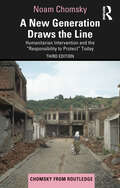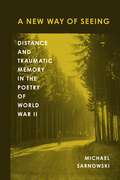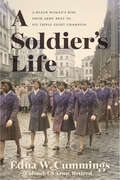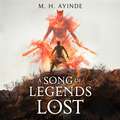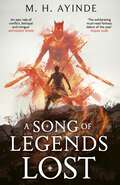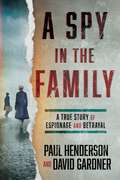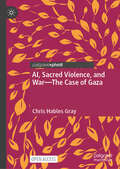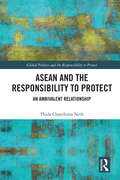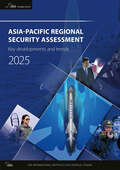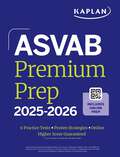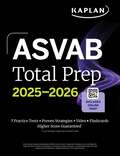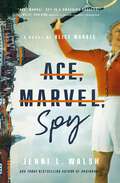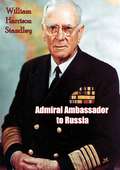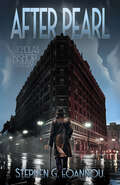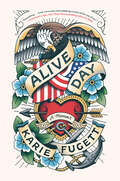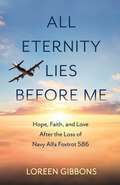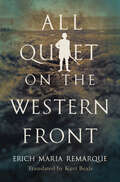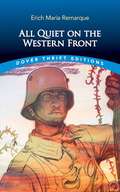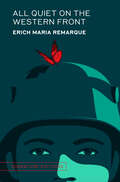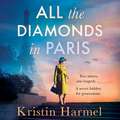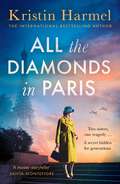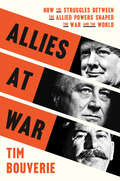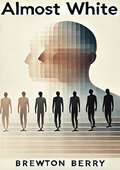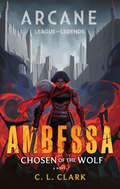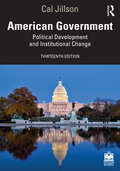- Table View
- List View
A New Generation Draws the Line: Humanitarian Intervention and the “Responsibility to Protect” Today (Chomsky from Routledge)
by Noam ChomskyIn this work, Chomsky explores the West’s uses and abuses of the principle of "human intervention." An updated foreword by Jean Bricmont explores the ongoing crises of humanitarian intervention in Afghanistan, Libya, Palestine, Syria, and Ukraine and reaffirms Chomsky’s excoriating critiques of Western foreign policy.Chomsky dissects the meaning and uses of humanitarian intervention grounded in the so-called "right to protect" (R2P). In doing so, Chomsky demonstrates how the principle of human intervention has been used as an instrument to justify military intervention in support of Western foreign policy aims. Through detailed case studies of the humanitarian intervention in East Timor and Kosovo, Chomsky also highlights how "humanitarian intervention" often leads to further atrocities and egregious abuses of human rights.As the question of humanitarian intervention looms ever larger, particularly with regard to the Middle East and Eastern Europe, this book is a vital overview of humanitarian intervention and its uses and abuses.
A New Way of Seeing: Distance and Traumatic Memory in the Poetry of World War II (American Wars and Popular Culture)
by Michael SarnowskiA New Way of Seeing considers the poetry of five writers—Louis Simpson, Keith Douglas, Richard Hugo, Howard Nemerov, and Randall Jarrell—whose work draws on their activities as soldiers in World War II. Basing his examination on extensive primary-source research, Michael Sarnowski identifies distance, both literal and figurative, and traumatic memory as two interconnected elements of how these poets internalized the war and made sense of the events they witnessed. The book is structured on a gradient related to each poet’s proximity to combat, as the chapters in turn focus on an infantryman (Simpson), a tank commander (Douglas), a bombardier (Hugo), a pilot (Nemerov), and a stateside flight instructor (Jarrell). Sarnowski relies on a wealth of archival material overlooked by previous scholarship, including poem drafts, correspondence, flight logs, and personal belongings. The conclusion revisits notions of legacy and representation by assessing factors that contributed to the early labeling of World War II soldiers as a “Silent Generation,” in contrast to the outpouring of poetry published during and following the First World War. By exploring how poets processed their wartime experiences, A New Way of Seeing offers a stark reminder of why it remains vital to recognize the physical, mental, and psychological consequences endured by veterans.
A Soldier's Life: A Black Woman's Rise from Army Brat to Six Triple Eight Champion (The Black Soldier in War and Society)
by Edna W. CummingsOne woman's extraordinary personal journey in the US military and her triumphant effort to honor her predecessors with the Congressional Gold Medal Looking back on her remarkable career, Retired Army Colonel Edna W. Cummings can justly say that &“the odds ain&’t good, but good stuff happens.&” Her story is as inspiring as it is improbable, but her memoir is about much more than herself. Chronicling Cummings&’s unlikely but successful path to leadership roles in the army and afterward, it also tells the story of the 6888th Central Postal Directory Battalion, known as the Six Triple Eight—a trailblazing African American World War II Women&’s Army Corps unit now the subject of a Netflix film and a Broadway-bound musical—and the grassroots campaign Cummings led to honor them. In 2022, due in large part to Cummings&’s efforts, the Six Triple Eight was awarded the nation&’s highest civilian honor—the Congressional Gold Medal. Among the fewer than two hundred recipients, including the crew of Apollo 11 and the Navajo Code Talkers, the Six Triple Eight is the only women&’s unit to receive this prestigious decoration. In A Soldier&’s Life Colonel Cummings narrates her path from childhood to advocate and how she overcame incredible odds not only for herself but on behalf of those who had come before her.
A Song of Legends Lost (The Invoker Trilogy)
by M. H. Ayinde'A relentlessly gripping, glorious epic fantasy - the exhilarating must-read fantasy debut of 2025' Tasha Suri, author of The Jasmine ThroneA SONG OF REBELLION. A SONG OF WAR. A SONG OF LEGENDS LOST.In the Nine Lands, only those of noble blood can summon the spirits of their ancestors to fight in battle. But when Temi, a commoner from the slums, accidentally invokes a powerful spirit, she finds it could hold the key to ending a centuries-long war.But not everything that can be invoked is an ancestor. And some of the spirits that can be drawn from the ancestral realm are more dangerous than anyone can imagine.A relentlessly gripping tale of revenge and rebellion, A Song of Legends Lost is an unmissable debut from a major new voice in epic fantasy, perfect for fans of John Gwynne, Anthony Ryan and Evan Winter'A truly excellent debut, with a genuinely fascinating magic system, engaging characters and deep worldbuilding. A fantastic read'James Islington, author of The Will of the Many'An epic tale of conflict, betrayal, and intrigue . . . M. H. Ayinde weaves a rich and engrossing story through a unique and fascinating world'Anthony Ryan, author of Blood Song'Stunning and vividly told . . . Ayinde is a master storyteller'Andrea Stewart, Sunday Times bestselling author of The Bone Shard DaughterReader reviews:'To me, it was perfect. It is what I have been searching for and it felt like home. One of the easiest 5* I have ever given'⭐⭐⭐⭐⭐'This book was INCREDIBLE. It was an amazing start to a trilogy, a blazing debut, and overall, just so, so good'⭐⭐⭐⭐⭐'A breathtaking debut that delivers a compelling mix of action, intrigue and emotional depth . . . an absolute must-read'⭐⭐⭐⭐⭐'Oh my GOD. Temi, my GIRL! Jinao, badass. Runt, JEEEEESUS . . . thank you M. H. Ayinde for a fantastic book'⭐⭐⭐⭐⭐'A breath of fresh air . . . I cannot recommend this enough and am waiting so impatiently for book 2'⭐⭐⭐⭐⭐'This book has filled the gaping holes that the Throne of Glass and Game of Thrones series have left in my heart . . .Watch out Sanderson and Martin, Ayinde is incoming!'⭐⭐⭐⭐⭐'So impeccably done. In awe of the skill on display here, from the prose to the worldbuilding to the character work to the sheer breadth of it all'⭐⭐⭐⭐⭐'I absolutely loved this book! . . . till thinking about it days after I finished'⭐⭐⭐⭐⭐'Exhilarating . . . delivers an unrelenting ride of action, intrigue and emotional depth . . . a must-read for fans of high-stakes fantasy, featuring a truly unique and thrilling world that promises much more to come'⭐⭐⭐⭐⭐
A Song of Legends Lost (The Invoker Trilogy)
by M. H. Ayinde'A relentlessly gripping, glorious epic fantasy - the exhilarating must-read fantasy debut of 2025' Tasha Suri, author of The Jasmine Throne'A truly excellent debut' James Islington, author of The Shadow of What Was Lost A SONG OF REBELLION. A SONG OF WAR. A SONG OF LEGENDS LOST.In the kingdom of Nine Lands, only warriors of noble blood can summon their ancestors to fight with them in battle. But when Temi, a commoner from the slums, accidentally invokes a powerful spirit, she finds it could hold the key to ending a centuries-long war.But as secrets long buried come to light, Temi will learn that not everything that can be invoked is an ancestor, and some of the spirits that can be drawn from the ancestral realm are more dangerous than anyone can imagine.'A Song of Legends Lost is stunning and vividly told . . . Ayinde is a master storyteller'Andrea Stewart, Sunday Times bestselling author of The Bone Shard Daughter'A whirlwind debut of ferocious talent and compulsive storytelling that lifts you up from the first page and never lets go. It's joyous from end to end - and highly recommended!'Lavie Tidhar, World Fantasy Award-winning author'An epic tale of conflict, betrayal, and intrigue . . . M. H. Ayinde weaves a rich and engrossing story through a unique and fascinating world'Anthony Ryan, author of Blood Song
A Spy in the Family: A True Story of Espionage and Betrayal
by David Gardner Paul HendersonA can’t-believe-it’s-true wartime page-turner that tells the incredible story of a mother, the son she was forced to give up for adoption, and the spy who, decades later, infiltrated her life with a devastating lie. Johanna van Haarlem never wanted to abandon her son, Erwin. But the Nazis had occupied Europe and the teenager felt she had little choice. Her father had kicked her out, telling her she could return, without the child—or not at all. Johanna realized that together, she and her newborn wouldn’t survive; separated, at least Erwin had a fighting chance. So she surrendered the baby to an orphanage and tearfully went back home, vowing to return for Erwin one day.Johanna lives to see the Nazis defeated, and to deeply regret abandoning her child. When, decades later, at the height of the Cold War, she receives a letter from Erwin, it feels like a miraculous second chance. But at their joyful reunion in London, Johanna makes a disturbing discovery: Erwin’s eyes are the wrong colour. In a decision that will come to haunt her, she quickly buries the seed of her doubt and welcomes the young man into her life.It will take more than a decade for the imposter’s deceit to come to light, even longer to untangle the lies shielding his real identity—and his motives. Unfolding in a series of astonishing twists and turns, A Spy in the Family reveals the true story of a notorious Soviet Bloc agent who took advantage of a mother’s heartbreak to hide in plain sight.
AI, Sacred Violence, and War—The Case of Gaza
by Chris Hables GrayThis open access book is about how Israel is using Algorithmic Intelligence (AI) and other computer technology in military operations in the Gaza Strip to achieve goals based on ancient religious entitlements. Changes in Israel Defense Force (IDF) ethical codes and innovation policies have not led to victory, but have resulted in a wide range of War Crimes and Crimes Against Humanity in a strategy focused on The Torture of Gaza, which includes ethnic cleansing and is approaching genocide. It covers the history of using AI in war, and current U.S. and Israeli military AI technologies such as Maven, Iron Dome, Pegasus, the Alchemist, Gospel, Lavender, and Where’s Daddy, all tested and perfected in the Palestinian Laboratory and marketed as such. This book also places the current data-driven and AI-directed assault on Palestine in the context of Postmodern War, which precludes military victories and enshrines the profits and power of the U.S.-Israeli military-industrial complex in a system of perpetual war and militarized technological innovation. Through an analysis of Israeli military policies, AI, sacred texts, and the basic tenets of postmodern war, the book ultimately reveals the limits of the IDF’s embrace of illusions about new technologies producing actual victory. War today is about winning hearts and minds, not body counts. As fundamentalist politics achieve more and more power around the world in the context of new information technologies, there is growing danger to the future of all of us.
ASEAN and the Responsibility to Protect: An Ambivalent Relationship (Global Politics and the Responsibility to Protect)
by Thida Chanthima NethThis book adopts a sociolegal and interdisciplinary approach to examine how the Responsibility to Protect (R2P) has been understood within the Association of Southeast Asian Nations (ASEAN).Historically, the international community has struggled to effectively address humanitarian crises worldwide. The concept of the 'Responsibility to Protect' (R2P) has emerged over the past two decades as a principle that could guide states’ efforts to prevent and respond to humanitarian crises. However, R2P's interpretation varies across different regions, and it remains to be established whether it can successfully achieve its goals. This book adopts an interdisciplinary approach to analyse how R2P has been perceived and applied within the Association of Southeast Asian Nations (ASEAN) and China. In particular, it explores ASEAN’s, ASEAN member-states’ and China’s understanding and implementation of R2P, paying special attention to the 1999 East Timor crisis, the Rohingya crisis, and the West Papua conflict. The book assesses whether R2P has influenced the actions of ASEAN, its member states, and China. At a broader level, the book also explores regional approaches to international law, shedding light on Southeast Asian states’ perspectives on this aspect of global governance.This book will be of much interest to students of Responsibility to Protect, Asian politics, human rights, international law, and International Relations in general.
ASIA-PACIFIC REGIONAL SECURITY ASSESSMENT 2025: Key developments and trends
The Asia-Pacific Regional Security Assessment (APRSA) examines key regional security policies and challenges relevant to the proceedings of the IISS Shangri-La Dialogue, Asia’s premier defence summit convened by the International Institute for Strategic Studies. It is published and launched at the Dialogue and the issues analysed within its covers are central to discussions at the event and beyond. This twelfth edition of the APRSA covers six chapters and is written by 21 IISS experts from across its offices in London, Berlin, Manama, Washington and Singapore and includes original maps, graphs, charts and tables. The chapters collectively examine how major security policies and trends across the Asia-Pacific are often significantly shaped by seemingly ‘non-security’ dynamics, from industrial globalisation to domestic and bureaucratic politics.The special-topic chapter this year will examine defence-industrial partnerships involving regional and extra-regional powers in the Asia-Pacific as, well as their aims and challenges. The other five chapters cover the following topics: The second Trump administration’s redrawing of the international security landscape Japan’s concerns over the growing ties between China, North Korea and Russia Emerging underwater security trends in the Asia-Pacific Military cyber maturity in the Asia-Pacific Southeast Asia’s uninhabited aerial vehicle-capability developments
ASVAB Premium Prep 2025-2026 (Kaplan Test Prep)
by Kaplan Test PrepASVAB Premium Prep 2025-2026: Your Pathway to Military SuccessWhy Choose ASVAB Premium Prep 2025-2026?Comprehensive Coverage: Our guide offers thorough coverage of all nine ASVAB test sections, including General Science, Arithmetic Reasoning, Word Knowledge, Paragraph Comprehension, Mathematics Knowledge, Electronics Information, Auto and Shop Information, Mechanical Comprehension, and Assembling Objects. You'll have all the content you need to master each section of the test. Expert Strategies: Developed by seasoned ASVAB tutors and military professionals, our test-taking strategies are designed to help you approach each question with confidence. Learn the tips and tricks that can boost your score and ensure you perform at your best on test day. Extensive Practice Materials: Practice is crucial for ASVAB success, and ASVAB Premium Prep 2025-2026 provides: 6 full-length practice tests, available in the book and online, to simulate the actual exam experience. Over 1000+ practice questions with detailed explanations, helping you understand your mistakes and learn from them. Drills and exercises for each test section to reinforce your skills and build your confidence. Customizable Study Plans: Whether you have several months or just a few weeks to prepare, our flexible study plans adapt to your schedule and learning style. Maximize your study time with a plan tailored to your needs and goals. Online Resources: Enhance your preparation with our comprehensive online platform, featuring interactive tutorials, video lessons, and progress tracking tools. Stay motivated and on track with resources designed to support your learning every step of the way. Updated for 2025-2026: Stay ahead with the most current information. Our guide is meticulously updated to reflect the latest changes and trends in the ASVAB exam, ensuring you're studying the most accurate and relevant material. Why It Stands Out:ASVAB Premium Prep 2025-2026 is more than just a study guide; it's a comprehensive preparation system designed to help you succeed. With extensive content coverage, expert strategies, abundant practice materials, and advanced online resources, it offers unparalleled value for aspiring military personnel. Choose ASVAB Premium Prep 2025-2026 and take the first step towards a successful military career. With our guide, you'll be well-prepared to achieve your best possible ASVAB scores and secure your place in the armed forces.
ASVAB Total Prep 2025-2026 (Kaplan Test Prep)
by Kaplan Test PrepASVAB Total Prep 2025-2026: Your Complete Guide to ASVAB ExcellenceWhy Choose ASVAB Total Prep 2025-2026?Unmatched Comprehensive Content: Our guide provides in-depth coverage of all nine ASVAB test sections: General Science, Arithmetic Reasoning, Word Knowledge, Paragraph Comprehension, Mathematics Knowledge, Electronics Information, Auto and Shop Information, Mechanical Comprehension, and Assembling Objects. You'll have everything you need to master each section and excel on the test. Advanced Test-Taking Strategies: Learn from experts with our proven test-taking strategies. Developed by experienced ASVAB tutors and military professionals, these techniques help you tackle each question with confidence and efficiency, maximizing your score potential. Extensive Practice Resources: Practice is key to success, and ASVAB Total Prep 2025-2026 delivers with: 7 full-length practice tests, available both in the book and online, to closely simulate the actual exam experience. Over 2,000+ practice questions with detailed explanations to help you understand your mistakes and improve. Targeted drills and exercises for each test section, designed to reinforce your knowledge and boost your skills. Plus flashcards in the book and also in an app to review on the go. Customizable Study Plans: Whether you have several months or just a few weeks to prepare, our flexible study plans are tailored to fit your schedule and learning style. Optimize your study time with a plan that adapts to your unique needs and goals. Interactive Online Resources: Enhance your preparation with our state-of-the-art online platform, featuring interactive tutorials, video lessons, customizable quizzes, and progress tracking tools. Stay motivated and on track with resources designed to support your learning journey. Updated for 2025-2026: Stay current with the latest information. ASVAB Total Prep 2025-2026 is meticulously updated to reflect the most recent changes and trends in the ASVAB exam, ensuring you're studying the most accurate and relevant material. Why It Stands Out:ASVAB Total Prep 2025-2026 is more than just a study guide—it's a complete preparation system designed to help you succeed. With unparalleled comprehensive content, expert strategies, abundant practice materials, and cutting-edge online resources, it offers the best value for ambitious military candidates.
Ace, Marvel, Spy: A Novel of Alice Marble
by Jenni L Walsh"Jenni L. Walsh captures the thrill of being on the court in a vivid and detailed portrayal of Alice Marble's rise to sporting greatness, as well as her struggles to fulfill her dreams both on and off the court. Ace, Marvel, Spy is a smashing success!" --Billie Jean King, sports icon and equality champion"All's fair in love and war--and tennis!--in Jenni L. Walsh's latest page-turning historical novel . . . Readers can't help but be inspired by this unflinching portrayal of a true American icon." --Kristy Woodson Harvey, New York Times Bestselling author of A Happier LifeTrailblazer, superstar, activist, and spy: Alice Marble is a true American icon.Alice strives to have it all.At seventeen, Alice Marble has no formal tennis skills and no coach. What she does have is an ability to hit the ball as hard as she can and a strong desire to prove herself. With steadfast determination and one sacrifice after another, Alice plays her heart out on the courts of the rich and famous, at national tournaments, and—the greatest of them all—at Wimbledon, rising to be one of the top-ranked players in the world.But then her world falls apart.With the outbreak of war with Germany, Alice&’s tennis career and life come to a screeching halt, and for the first time, she is forced to confront who she is without tennis. As she seeks to understand her new place in the world and how she can aid in the war efforts, a telegram arrives with devastating news from overseas. Heartbroken and lost, she feels like she can only watch as the war wreaks havoc in every area of her life.Until an unexpected invitation arrives.Alice is given the chance to fight back when the US Army sends her a request: Under the guise of playing in tennis exhibition games in Switzerland, she would be a spy for them. Alice aches for nothing more than to avenge what the war has taken from her and to prove herself against this new opponent. But what awaits her might be her greatest challenge yet.From her start as a promising athlete with worn-out shoes to her status as a glamorous international star, Alice Marble&’s determination to control her own life and destiny fuels a story of achievement, discipline, loss, and love.Jenni L. Walsh&’s Ace, Marvel, Spy brilliantly showcases the life of Alice Marble, a real-life tennis sensation known for her extraordinary talent and indomitable spirit. This fast-paced and action-packed historical novel spans multiple international settings and is enhanced by discussion questions that prompt readers to reflect on Alice&’s challenges and triumphs, making it an ideal choice for book clubs.
Admiral Ambassador to Russia
by William Harrison StandleyWilliam Harrison Standley’s Admiral Ambassador to Russia is a riveting firsthand account of the author’s dual roles as a distinguished naval officer and U.S. ambassador to the Soviet Union during a pivotal period in history. This memoir offers unique insights into the complexities of diplomacy and military strategy during World War II, as seen through the eyes of a man who navigated both arenas with skill and determination.Admiral Standley recounts his time as a senior naval officer, including his role as Chief of Naval Operations, before transitioning to his diplomatic post in the USSR in 1942. As ambassador, he worked to strengthen the fragile alliance between the United States and the Soviet Union, addressing the challenges of cultural and ideological differences while managing critical wartime negotiations.The book provides a rare glimpse into Standley’s interactions with key figures such as Joseph Stalin and Franklin D. Roosevelt, offering candid observations on the political dynamics and tensions of the time. Standley’s narrative combines vivid descriptions of wartime Moscow, keen insights into Soviet-American relations, and reflections on the difficulties of building trust between allies with starkly different worldviews.Admiral Ambassador to Russia is not only a compelling personal story but also an invaluable historical document that sheds light on the challenges of diplomacy during one of the most consequential conflicts in modern history. Standley’s blend of military expertise and diplomatic candor makes this memoir a must-read for history enthusiasts, military scholars, and anyone interested in the intricate dance of international relations during World War II.
After Pearl (The Nicholas Bishop Mysteries)
by Stephen G. Eoannou1942. War rages in Europe. Pearl Harbor still smolders. And alcoholic private eye Nicholas Bishop wakes up on a hotel room floor with two slugs missing from his .38 revolver. The cops think he' s murdered lounge singer Pearl DuGaye, mobsters think he saw something he shouldn' t have, and Bishop remembers nothing... Together with his indomitable assistant Gia Alessi, who he may or may not have fired, a WWI vet who often flashes back to 1918, and a one-eyed female dog named Jake, Bishop tries to piece together the events that took place during his disastrous five-day bender. Along the way, he stumbles across a dirty politician, a socialite and her unfaithful husband, and a cabal of American Nazis who are undoubtedly up to no good. Written in the spirit of classic noir, Eoannou adds his own unique voice and flair to the genre in this, the first action-packed outing of the Nicholas Bishop Mysteries...
Alive Day: A Memoir
by Karie FugettA searing, unflinchingly intimate memoir about one young couple caught up in the machinery of America&’s military system, learning to live and love through war and all that comes after&“Astonishing . . . both a love story and a gripping account of the cost of war.&”—Stephanie Land, bestselling author of Maid and ClassKarie Fugett is living out of her car in a Kmart parking lot when her boyfriend, Cleve, suggests, &“Maybe we could get married or somethin&’.&” Karie says yes out of love but also out of convenience. As a twenty-year-old high school dropout who ran away from her family and recently lost her job, Karie has nowhere else to turn. Just months after they elope, Cleve&’s Marine unit is deployed to Iraq. It isn&’t long before Karie gets the call: Cleve&’s Humvee has been hit by an IED, and he&’s suffered severe injuries.Karie rushes to Walter Reed, where she&’s told it&’s a miracle that her husband has survived. &“Happy Alive Day, man,&” a fellow vet says to Cleve, explaining that this will always be the day when he was given a second chance at life. Newlyweds barely out of their teens, Karie and Cleve are thrust into utterly foreign roles. Karie tries to adapt to her job as a caregiver, navigating the labyrinthine system of veterans affairs, hospital bureaucracies, and doctors who do little more than shrug when she raises concerns about Cleve&’s dependency on painkillers. It is clear to Karie that Cleve is using opiates to dull a pain that is more than physical. She catches his first overdose, but what if she can&’t save him a second time? Will she still be able to save herself?Fugett&’s story depicts an oft-overlooked reality of war: the experience of the many thousands of caregivers and spouses—mostly women, mostly young, mostly poor—whose lives have been shattered by battles fought against enemies abroad and against addiction at home. Tender, vivid, and laced with dark humor, Alive Day is at once an epic and engrossing love story, a testament to the resilience of the human spirit, and a powerful indictment of the sins of a nation.
All Eternity Lies Before Me
by Loreen GibbonsA suspense-filled real-life drama perfect for veterans and fans of military dramas alike, the author interweaves her memories as a Navy pilot&’s wife with the tale of what happened to her husband&’s crew after having to ditch their crippled plane in stormy North Pacific waters during the Cold War.Alfa Foxtrot 586, a P-3 Orion turboprop, was conducting a sensitive Cold War mission off the Kamchatka Peninsula on October 26, 1978, when a propeller malfunction turned into four engine fires and the pilot—Loreen Grigsby&’s husband, Jerry—was forced to ditch into remote, mountainous seas churned by a frigid North Pacific storm. The aircraft sank within ninety seconds, taking one of the three rafts with it—which left thirteen men to huddle together in the remaining two rafts, the smaller of which soon began to leak. Told from Loreen&’s perspective as a navy wife at home as well as through the eyes of the men who survived the disaster, All Eternity Lies Before Me weaves a gripping tale of struggle, uncertainty, grief, and heroism. It shares Loreen&’s terror as she receives notifications about her husband&’s crew&’s desperate battle against wind, seas, and biting cold. It details the ad hoc search and rescue mission, a valiant effort to rescue the men before time runs out. And, tragically, it tells how a young Navy wife becomes a widow and single mom. But Jerry&’s death is not the end of Loreen&’s story—and in the years following his loss, she discovers resilience, strength, and even new love with one of the accident survivors, Matt Gibbons. As she begins her journey toward a brighter future, she&’s inspired by the camaraderie and brotherhood forged between the survivors and their rescuers—and ultimately, the long-term lessons learned by all involved become part of the lasting legacy of this event.
All Quiet on the Western Front
by Erich Maria RemarqueThe greatest war novel of all time rendered in a taut, muscular, and urgent new translation. An immediate sensation when it was published in 1929, Erich Maria Remarque’s All Quiet on the Western Front has sold more than twenty million copies worldwide since then, making it the best-selling German novel of all time. Its impact is indisputable: it has been adapted for film, television, and other media; has influenced all subsequent works of war literature; and has been taught in high school and college classes ever since. Until now, one translation—published in 1929, and very much a product of its time—has introduced most readers in English to Remarque’s wrenching portrait of the horrors of trench warfare. Now, nearly a century later, renowned translator Kurt Beals recaptures the energy and descriptive force of the German original, rendering Remarque’s distinctly terse, telegraphic prose into a contemporary idiom, conveying for a new generation the immediacy and intensity of this classic novel.
All Quiet on the Western Front (Dover Thrift Editions: Classic Novels)
by Erich Maria RemarqueA harrowing and unflinching novel about the brutal reality of World War I, All Quiet on the Western Front starkly contrasts the disillusionment and horror of war with a young German soldier's initial fervor and patriotism. As Paul Bäumer and his comrades grapple with relentless shelling, hunger, and the constant fear of death, their youthful idealism crumbles. Erich Maria Remarque's vivid narrative strips away the glory of war, exposing the senseless violence and loss and the psychological torment endured by a generation of soldiers. Arguably one of the most famous war novels of all the Modern era, this timeless classic presents a scathing critique of nationalism, a devastating indictment of war, and an enduring exploration of what it means to be human under extraordinary duress. The tale is so profoundly moving that it has been adapted into an Oscar-winning cinematic masterpiece not once, but twice.
All Quiet on the Western Front (Signature Editions)
by Erich Maria RemarqueI am young, I am twenty years old; yet I know nothing of life but despair, death, fear, and fatuous superficiality cast over an abyss of sorrow. . . This is the testament of Paul Bäumer, who enlists with his classmates in the German army during World War I. They become soldiers with youthful enthusiasm. But the world of duty, culture, and progress they had been taught breaks in pieces under the first bombardment in the trenches. Through years of vivid horror, Paul holds fast to a single vow: to fight against the principle of hate that meaninglessly pits young men of the same generation but different uniforms against one another . . . if only he can come out of the war alive.
All the Diamonds in Paris: the sweeping new novel from the New York Times bestselling author
by Kristin Harmel'Kristin Harmel is firmly in the top echelon of WW2 storytellers' HEATHER MORRIS'A master storyteller' SANTA MONTEFIORE'The best at sweeping historical drama' KELLY HARMS'A dazzling diamond of a novel' HAZEL GAYNOR***Paris, 1942: In the midst of the Nazi Occupation, Annabel Marceau begins stealing from Germans and funnelling money to the French Resistance. But when she takes a pair of valuable bracelets from a high-ranking Nazi officer, she finds herself - and her two young daughters - in the line of fire, with devastating consequences. Boston, 2018: Colette Marceau, now in her eighties, has spent a lifetime determined to find out what happened to her mother and sister that fateful night. When one of the missing bracelets surfaces at the Boston Diamond Museum, can she finally find the answers - and justice - she has been looking for? *Published under the title The Stolen Life of Colette Marceau in the US*A heart-wrenching and evocative dual-timeline novel, perfect for fans of Santa Montefiore, Rachel Hore, Lucinda Riley and Kristin Hannah.***PRAISE FOR THE PARIS DAUGHTER:'An unmissable reading treat' Lancashire Evening Post'Beautifully written and emotionally charged . . . impossible to put down' HAZEL GAYNOR'The Paris Daughter tore up my heart and put it back together again' MARTHA HALL KELLY'A gorgeous, gut-wrenching read!' KATE QUINN
All the Diamonds in Paris: the sweeping new novel from the New York Times bestselling author
by Kristin Harmel'Kristin Harmel is firmly in the top echelon of WW2 storytellers' HEATHER MORRIS'A master storyteller' SANTA MONTEFIORE'The best at sweeping historical drama' KELLY HARMS'A dazzling diamond of a novel' HAZEL GAYNOR***Paris, 1942: In the midst of the Nazi Occupation, Annabel Marceau begins stealing from Germans and funnelling money to the French Resistance. But when she takes a pair of valuable bracelets from a high-ranking Nazi officer, she finds herself - and her two young daughters - in the line of fire, with devastating consequences. Boston, 2018: Colette Marceau, now in her eighties, has spent a lifetime determined to find out what happened to her mother and sister that fateful night. When one of the missing bracelets surfaces at the Boston Diamond Museum, can she finally find the answers - and justice - she has been looking for? *Published under the title The Stolen Life of Colette Marceau in the US*A heart-wrenching and evocative dual-timeline novel, perfect for fans of Santa Montefiore, Rachel Hore, Lucinda Riley and Kristin Hannah.***PRAISE FOR THE PARIS DAUGHTER:'An unmissable reading treat' Lancashire Evening Post'Beautifully written and emotionally charged . . . impossible to put down' HAZEL GAYNOR'The Paris Daughter tore up my heart and put it back together again' MARTHA HALL KELLY'A gorgeous, gut-wrenching read!' KATE QUINN
Allies at War: How the Struggles Between the Allied Powers Shaped the War and the World
by Tim BouverieA &“revelatory&” (The Guardian) political history of World War II that opens a window onto the difficulties of holding together the coalition that ultimately defeated Hitler—by the critically acclaimed author of Appeasement&“A fine reassessment of Allied politics and diplomacy during the Second World War: impeccably researched, elegantly written and compellingly argued.&”—The Times (UK) After the fall of France in June 1940, all that stood between Adolf Hitler and total victory was a narrow stretch of water and the defiance of the British people. Desperate for allies, Winston Churchill did everything he could to bring the United States into the conflict, drive the Soviet Union and Nazi Germany apart, and persuade neutral countries to resist German domination.By early 1942, after the German invasion of Russia and the Japanese attack on Pearl Harbor, the British-Soviet-American alliance was in place. Yet it was an improbable and incongruous coalition, divided by ideology and politics and riven with mistrust and deceit. Churchill, Franklin D. Roosevelt, and Joseph Stalin were partners in the fight to defeat Hitler, but they were also rivals who disagreed on strategy, imperialism, and the future of liberated Europe. Only by looking at their areas of conflict, as well as cooperation, are we able to understand the course of the war and world that developed in its aftermath.Allies at War is a fast-paced, narrative history, based on material drawn from more than a hundred archives. Using vivid, firsthand accounts and unpublished diaries, Bouverie invites readers into the rooms where the critical decisions were made and goes beyond the confines of the Grand Alliance to examine, among other topics, the doomed Anglo-French partnership and fractious relations with General Charles de Gaulle and the Free French, and interactions with Poland, Greece, Francoist Spain and neutral Ireland, Yugoslavia, and Nationalist China.Ambitious and compelling, revealing the political drama behind the military events, Allies at War offers a fresh perspective on the Second World War and the origins of the Cold War.
Almost White
by Brewton BerryAlmost White by Brewton Berry is a compelling exploration of the complex identities and lived experiences of racial and ethnic groups that occupy the ambiguous space between traditional categories of "black" and "white" in the United States. Through meticulous research and vivid storytelling, Berry examines communities such as the Melungeons, the Cajuns, and other historically marginalized groups that defy easy classification, shedding light on their struggles, adaptations, and contributions to American society.Berry delves into the historical, social, and cultural forces that have shaped these groups, addressing the tensions of assimilation, discrimination, and self-identification. He vividly portrays their attempts to navigate a society often defined by rigid racial hierarchies, uncovering the resilience and ingenuity of these communities in the face of exclusion and prejudice.With empathy and academic rigor, Almost White challenges readers to rethink the simplistic binaries of race and ethnicity, offering a nuanced perspective on the fluidity and complexity of identity. By weaving historical analysis with personal stories and field observations, Berry not only provides a deeper understanding of these groups but also prompts broader reflection on the intersections of race, culture, and belonging.This groundbreaking work is essential reading for anyone interested in sociology, anthropology, or American history, as well as those seeking to understand the untold stories of communities often left out of mainstream narratives.
Ambessa: A League of Legends: Arcane Novel
by C. L. ClarkSet in the blockbuster and award-winning universe of League of Legends: Arcane and written by award-winning author C. L. Clark, discover a thrilling epic fantasy novel where Ambessa Medarda truly learns what it means to be a Chosen of the Wolf. Medarda over all. Ambessa Medarda: Warrior, general, mother. She is a woman to be feared, and the Medardas are unrivaled in their pursuit of glory. She has led conquests and armies. She has slain legendary beasts. She has made grave sacrifices in her ascent up the ranks. And for this she was rewarded: She entered the realm of death and was granted a vision of herself upon the throne of the vast Noxian empire. But before she can lead her empire, she must become head of her own clan. Yet the title is contested by her cousin and former confidante, Ta&’Fik. He knows the bloody sins of Ambessa&’s past. And he knows he cannot allow her to rise. They will fight a war for the very soul of the Medardas. But the war won&’t be fought on battlefields alone. Ambessa&’s daughter, Mel, can deftly break through the walls around anyone&’s heart, and she&’ll put her talents to use for her mother. Yet despite Mel&’s strength, Ambessa sees only a child who lacks her killer instincts. Mel knows she can be the leader Ambessa wants her to be, if only she gives her time. With her family betraying her, enemies closing in on all sides, and unseen forces moving in the shadows, every day proves more dangerous than the last. But Ambessa will not bow. She will burn the world down to claim her place in it.
American Government: Political Development and Institutional Change
by Cal JillsonHow politics in America works today, how it got that way, and how it’s likely to change through reform—these are the themes that pervade every chapter of Cal Jillson’s highly lauded American Government: Political Development and Institutional Change. Even in the midst of current challenges, America’s past is present in all aspects of the contemporary political system. Jillson uses political development and the dynamics of change as a thematic tool to help students understand how politics works now—and how institutions, participation, and policies have evolved over time to produce the contemporary political environment. In addition, Jillson helps students think critically about how American democracy might evolve further, focusing in every chapter on reform and further change.New to the Thirteeenth Edition Assesses the results of the Biden administration and the impact on the 2024 campaign of Biden’s unexpected replacement by Kamala Harris at the top of the ticket. Describes numerous ways in which the American political system has been affected by recovery from the Covid-19 pandemic, the demise of Roe v. Wade, inflation, and the border. Assesses the implications of the January 6, 2021 attack on the Capitol, the Trump trials, and what they mean for our political culture and partisan politics. Assesses the implication of "fake news" and "the move to mobile" for our politics.Explores the evidence for increasing polarization in public opinion, voting behavior, and the work of Congress and the courts. Details the impact that the Russian invasion of Ukraine and the war in Israel and Gaza had on U.S. foreign policy and national security alliances.
